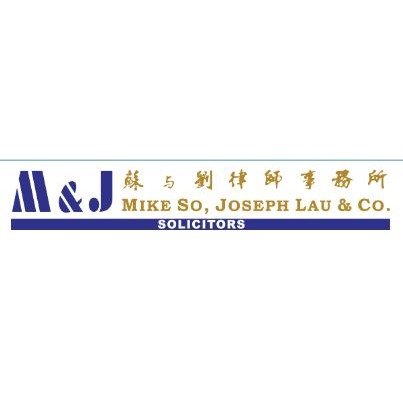Best Conveyancing Lawyers in Sheung Wan
Share your needs with us, get contacted by law firms.
Free. Takes 2 min.
Free Guide to Hiring a Real Estate Lawyer
List of the best lawyers in Sheung Wan, Hong Kong
About Conveyancing Law in Sheung Wan, Hong Kong
Conveyancing is the legal process involved in the transfer of property ownership from one party to another. In Sheung Wan, a bustling district in Hong Kong Island, the property market is dynamic and fast-paced. Conveyancing in this area typically refers to transactions involving residential, commercial, and industrial properties. The process ensures that all legal aspects of the property transfer are handled correctly, protecting both buyers and sellers from future disputes or issues. Legal professionals specializing in conveyancing help facilitate these transactions, ensuring compliance with Hong Kong’s intricate property laws.
Why You May Need a Lawyer
People in Sheung Wan often seek legal assistance for conveyancing because property transactions in Hong Kong involve complex legal documents, strict timelines, and significant financial investments. Common situations that may require a lawyer include:
- Purchasing a new home, shop, or commercial space
- Selling an existing property
- Transferring property ownership to family members
- Remortgaging or refinancing real estate assets
- Resolving title issues or boundary disputes
- Handling government regulations or special property restrictions
A lawyer ensures that contracts are properly drafted and reviewed, searches on the property are thoroughly conducted, and all statutory requirements and stamp duties are fulfilled. Without professional help, mistakes or omissions can result in disputes, delays, or financial losses.
Local Laws Overview
Conveyancing in Sheung Wan is governed by the broad legal framework applicable across Hong Kong. Some of the crucial aspects include:
- Land Registration: All property transactions must be registered with the Land Registry to be legally binding and to give notice to the public.
- Deed of Mutual Covenant (DMC): Many properties in Sheung Wan are subject to DMCs, which govern the rights and responsibilities of owners within a building or complex.
- Stamp Duty: Buyers are required to pay stamp duty, and the rates vary depending on the type of property and the value of the transaction.
- Title Search: Lawyers conduct a title search to ensure the seller has a clear and marketable title, free from encumbrances or legal claims.
- Occupational Documents: Ensuring all occupation permits, assignments, and necessary approvals are in place is vital in the transfer process.
- Foreign Ownership Regulations: While foreigners can own property, there may be additional compliance steps for overseas buyers.
- Sale and Purchase Agreement: This legally binding contract must be drafted and reviewed by qualified solicitors to protect the interests of all parties involved.
These laws and procedures make legal advice indispensable in avoiding mistakes and ensuring a smooth property transaction in Sheung Wan.
Frequently Asked Questions
What documents are required for property conveyancing in Sheung Wan?
You typically need your identity documents, the sale and purchase agreement, proof of ownership (such as your title deed), and other property-related documents like occupation permits or DMC agreements.
How long does the conveyancing process take?
Generally, property transactions in Hong Kong complete in about 8 to 12 weeks, but timing can vary depending on the complexity of the deal and the parties involved.
What fees are involved in conveyancing?
Major fees include legal fees, stamp duty, registration fees, estate agent commissions, and possible management or government charges related to the property.
Can I do the conveyancing myself without a lawyer?
While legally possible, it is not advisable due to the complexities and risks involved. Solicitors ensure your interests are protected and that the transaction is properly documented.
What is a title search and why is it important?
A title search reviews the property’s history to check for mortgages, liens, or legal issues. It is critical to confirm the seller can lawfully transfer ownership without outstanding claims.
How is stamp duty calculated for property in Sheung Wan?
Stamp duty is based on the property’s purchase price or market value. Rates vary for different types of buyers and properties. Your lawyer or agent can help you calculate the exact amount.
What happens if problems are found during the conveyancing process?
If legal or title issues are discovered, your lawyer will advise on possible solutions, renegotiate terms, or, in serious cases, recommend discontinuing the transaction.
Do foreigners face any special restrictions when buying property in Sheung Wan?
There are no restrictions on foreign ownership for most property types, but certain government-controlled properties may have specific rules. Additional due diligence or regulatory steps may be required for overseas buyers.
Who handles the registration of the property after purchase?
Your solicitor will prepare and submit all necessary documents to the Land Registry to ensure the legal transfer of ownership into the new buyer’s name.
What is a Deed of Mutual Covenant and why does it matter?
A Deed of Mutual Covenant is a document governing shared property, such as buildings with multiple owners. It outlines rules for property usage, management, and maintenance, affecting your rights as an owner.
Additional Resources
For further information or support regarding conveyancing in Sheung Wan, consider contacting or consulting the following resources:
- Hong Kong Land Registry - For property registration and searches
- Law Society of Hong Kong - To find qualified solicitors specializing in property law
- Hong Kong Housing Authority - For information on government housing schemes
- Consumer Council - For guidance on property transactions and dispute resolution
- District Land Offices - For region-specific property information and support
Next Steps
If you are considering a property transaction in Sheung Wan or need advice regarding ownership, your first step should be to contact a solicitor who specializes in conveyancing. Prepare copies of all relevant property and identification documents to streamline the process. Your lawyer will explain your rights, guide you through paperwork, liaise with the other party’s solicitor, and ensure that your interests are protected throughout the transaction. Do not hesitate to ask questions or request updates, as clear communication is key to a smooth and stress-free conveyancing process.
Lawzana helps you find the best lawyers and law firms in Sheung Wan through a curated and pre-screened list of qualified legal professionals. Our platform offers rankings and detailed profiles of attorneys and law firms, allowing you to compare based on practice areas, including Conveyancing, experience, and client feedback.
Each profile includes a description of the firm's areas of practice, client reviews, team members and partners, year of establishment, spoken languages, office locations, contact information, social media presence, and any published articles or resources. Most firms on our platform speak English and are experienced in both local and international legal matters.
Get a quote from top-rated law firms in Sheung Wan, Hong Kong — quickly, securely, and without unnecessary hassle.
Disclaimer:
The information provided on this page is for general informational purposes only and does not constitute legal advice. While we strive to ensure the accuracy and relevance of the content, legal information may change over time, and interpretations of the law can vary. You should always consult with a qualified legal professional for advice specific to your situation.
We disclaim all liability for actions taken or not taken based on the content of this page. If you believe any information is incorrect or outdated, please contact us, and we will review and update it where appropriate.












